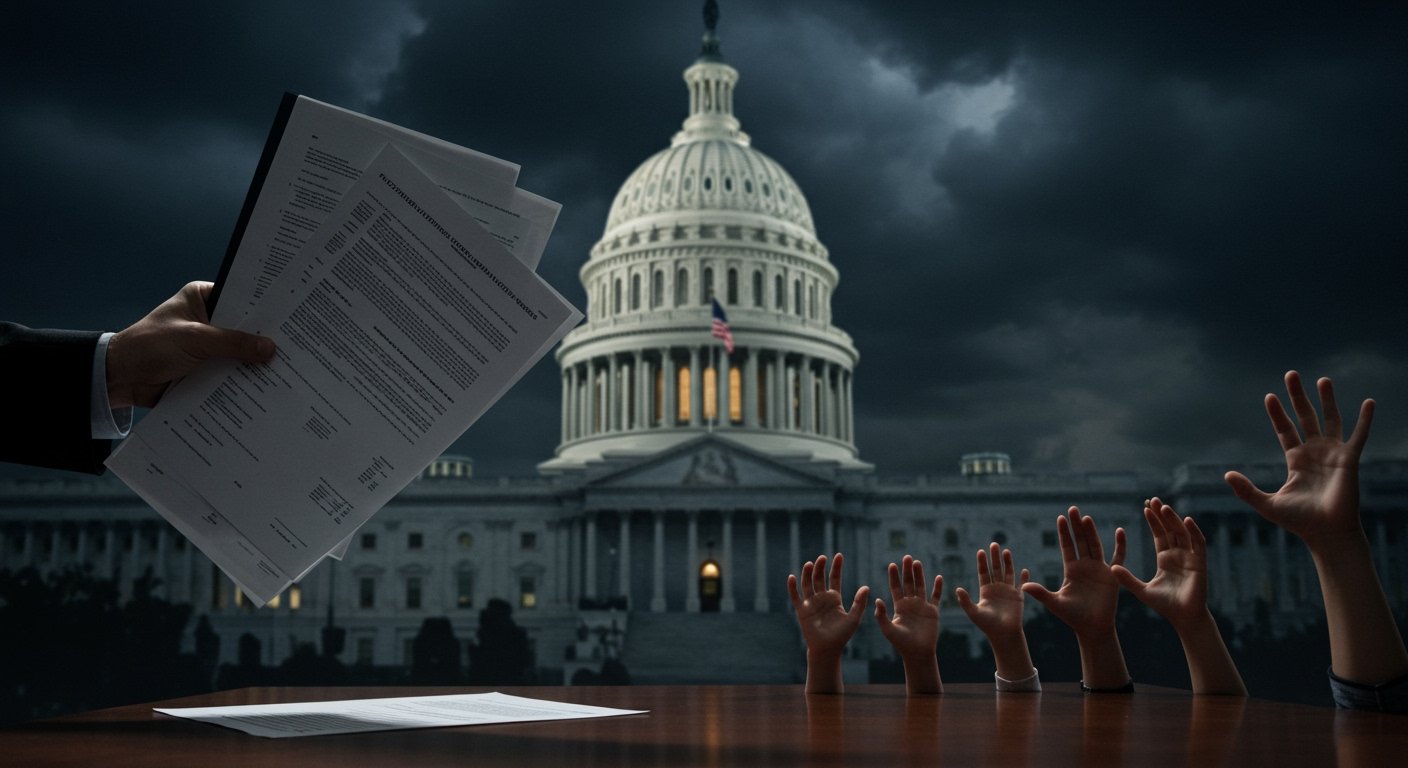The State Legislature today passed a landmark financial measure, The Economic Recovery and Stability Act (Bill S.123), allocating a substantial $5.8 billion towards statewide relief efforts. The decisive vote, which occurred late on October 26, 2023, in the historic Assembly Hall at the State Capital, marks a significant legislative action aimed at bolstering the economy and providing direct support to residents and businesses grappling with ongoing financial pressures.
Governor Emily Carter swiftly lauded the passage of Bill S.123, highlighting its potential to deliver crucial aid where it is most needed. “This legislation is a vital step forward,” stated Governor Carter in a press conference following the vote. “It reflects our commitment to ensuring that families can keep food on the table and that our small businesses, the backbone of our communities, have the resources to not just survive, but thrive.”
Key Provisions of Bill S.123
The comprehensive Economic Recovery and Stability Act outlines several key initiatives designed to inject funds directly into the state’s economy.
A central component is the provision of direct financial payments to eligible adult residents. Under the terms of the bill, qualified individuals will receive a one-time payment of $1,200. Eligibility criteria, defined within the legislation, are primarily based on income thresholds from the most recent tax filing period, aiming to target low-to-moderate income households.
In addition to individual aid, Bill S.123 dedicates a significant portion of the funding towards supporting the state’s business sector. Approximately $1.5 billion is specifically allocated for a new program offering grants to small businesses. These grants are intended to help cover operational costs, retain employees, and adapt to changing economic conditions, with priority given to businesses demonstrating significant revenue losses or located in disproportionately affected areas.
The bill also includes provisions for enhancing unemployment benefits programs and funding for critical public services strained by economic downturns.
Legislative Debate and Political Reactions
The path to passage for Bill S.123 was marked by extensive debate, reflecting diverse perspectives on the state’s fiscal strategy.
Supporters, led by the legislative majority and backed by Governor Carter’s administration, emphasized the urgency of the economic situation and the necessity of bold government intervention. They argued that the $5.8 billion investment would stimulate consumer spending, prevent widespread business failures, and ultimately lead to a faster and more equitable recovery.
Conversely, the bill faced opposition from some legislators, including Senator David Chen. Senator Chen voiced concerns primarily centered on the long-term fiscal implications of the spending. “While the need for aid is undeniable, adding a $5.8 billion expenditure to our state’s obligations without a clear, sustainable funding mechanism raises serious questions about increasing the deficit and burdening future generations,” Senator Chen stated during floor debate. Critics proposed alternative measures focusing on tax cuts or more targeted business incentives.
Despite these reservations, the bill garnered sufficient support, navigating through various committee stages before reaching the final vote in the Assembly Hall.
Implementation Timeline and Process
Following its passage, The Economic Recovery and Stability Act is expected to be signed into law by Governor Carter in the coming days. The state’s Department of Finance, in coordination with other relevant agencies, is tasked with the complex process of implementing the bill’s various provisions.
Officials estimate that the first direct payments to residents could begin flowing by December 15, 2023. The rollout of small business grants will follow, requiring the establishment of application processes and review criteria.
Challenges remain in ensuring the efficient and equitable distribution of funds, and state agencies are reportedly working diligently to minimize bureaucratic hurdles.
Anticipated Impact
The successful implementation of Bill S.123 is projected to have a significant impact across the state. The $1,200 direct payments are expected to provide immediate financial relief to millions of households, potentially boosting retail sales and other consumer spending.
The $1.5 billion in small business grants could be critical for the survival and expansion of thousands of local enterprises, helping to preserve jobs and maintain community vitality. Economists are closely watching how the $5.8 billion total package will influence key economic indicators in the coming months.
Passage of The Economic Recovery and Stability Act (S.123) represents a major legislative response to economic challenges, setting the stage for substantial government spending aimed at fostering recovery and stability throughout the state.












Покупка ссылок для SEO? Только на тематических и авторитетных для Гродно ресурсах (городские порталы, СМИ). Качественные ссылки в рамках «белого» продвижения для устойчивого seo продвижение сайта гродно роста авторитета сайта.
Кровельные работы в коттеджном посёлке. Имеем большой опыт работы на закрытых территориях замена крыши в молодечно. Согласуем вывоз мусора, обеспечим тишину в нерабочее время. Работаем по стандартам, принятым в вашем посёлке. Индивидуальный подход к каждому заказчику.
Квартира-студия на сутки. Современный дизайн, smart-TV, посудомоечная машина на сутки борисов. Тихий двор, но в 5 минутах от оживленных улиц. Идеальная чистота перед каждым гостем. Свяжитесь!
Апартаменты для романтического побега: двуспальная кровать с балдахином, джакузи, приглушенный свет аренда квартиры на сутки гродно. Бутик-отель уровня в частной квартире. Подарите себе особенное свидание.
Современный дизайн окон для квартиры в Молодечно. Разные формы и цвета kupit-plastikovoye-okno-molodechno.ru. Создадим окно вашей мечты.
Сдаётся трёхкомнатная квартира. Можно как жилье или под офис (первый этаж, отдельный вход) аренда квартиры в борисове. Ремонт простой, мебель по желанию. Цена договорная.
Снять квартиру на сутки в Вилейке недорого. Чисто, комфортно, хорошее расположение. Идеальная остановка для путешественников. Приезжайте telegra
Срочный ремонт крыши после урагана. Замена поврежденных листов кровельные работы в Молодечно, укрепление конструкции. Работаем со страховыми компаниями.
Покупка старого домена с историей может дать фору в продвижении, но это риск. Проверьте историю домена на наличие спам-ссылок и фильтров. Лучше построить домен с нуля и чистой репутацией. prodvizheniye-sayta-grodno.ru